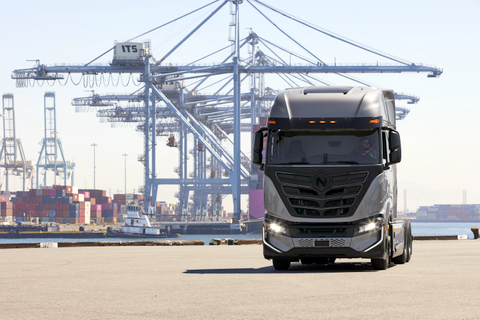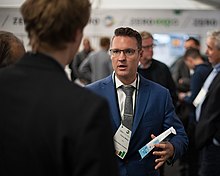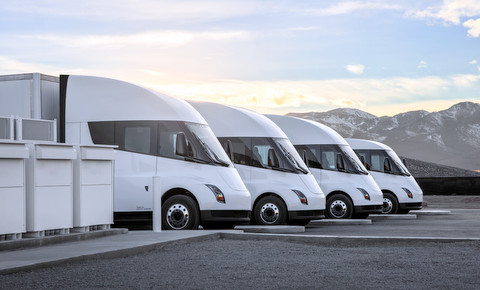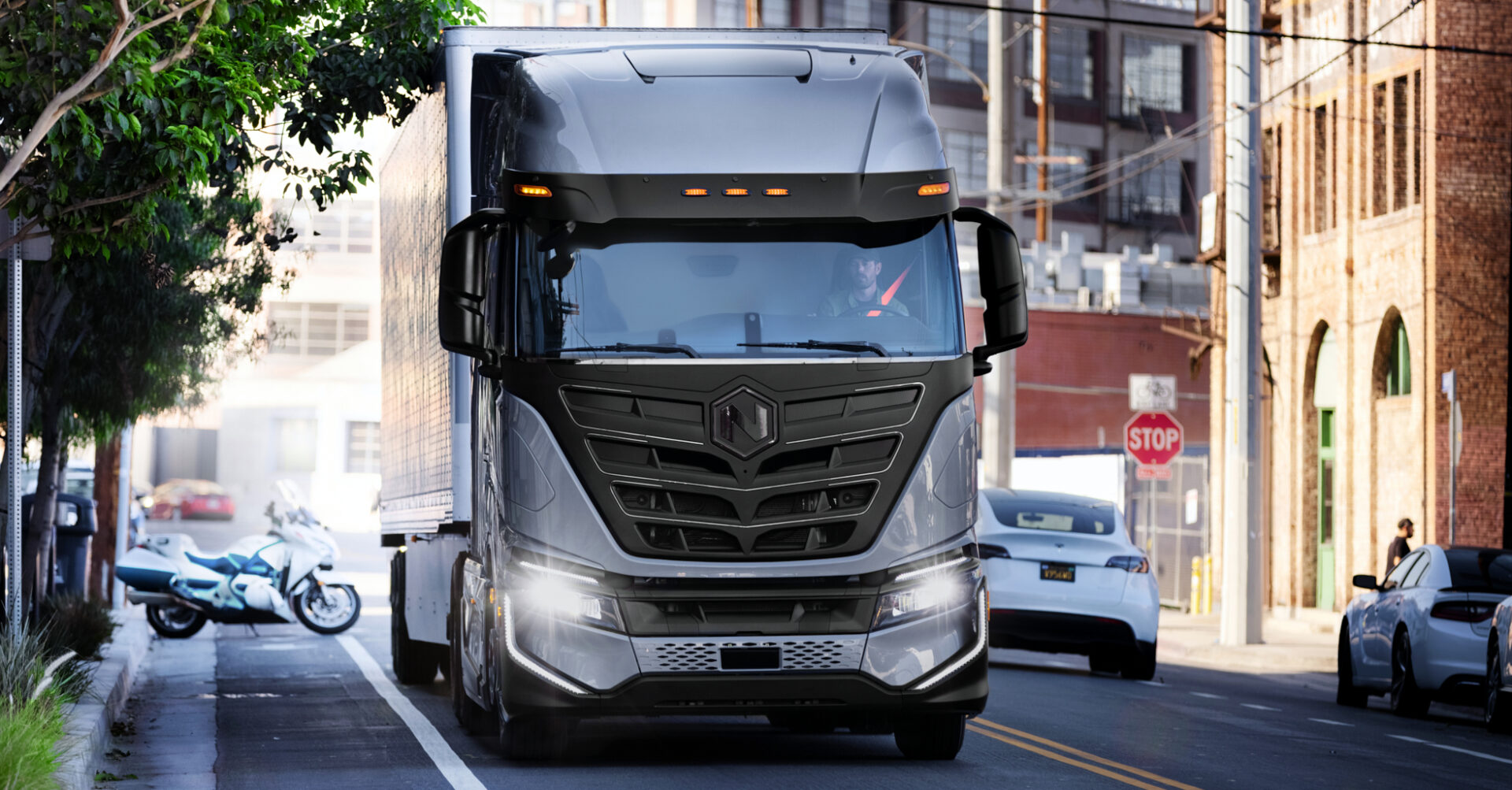Commercial Zero-Emission Vehicle Investors Challenged, But Industry Moves On
Globally, countries have fast-tracked their electric vehicle (EV) manufacturing to combat rising emissions and meet the 2 C standard of the Paris Climate Agreement. Then Nikola’s Founder’s fraudulent activity was uncovered, and the conversation surrounding EVs has changed for better or worse.

In the United States, transportation accounts for 27% of greenhouse gases—the largest source of emissions of any sector. The call for a low to zero-emissions alternatives is loud and clear, especially since 91.6% of Americans own one to three vehicles per household.
Today’s vehicle manufacturing companies have ramped up domestic EV production and are exploring the latest roadway innovations. The revelation that not everyone is putting the environment over profit caused a “disturbance in the Force,” as some might call it.
Uncovering Nikola’s Lies
Nikola initially set out to produce low and emission-free semi-trucks. The company gathered support from industry veterans, showed off concept vehicles, gathered provisional purchase orders, cut deals with companies as large as General Motors, and went public via a special purpose acquisition company (SPAC) in mid-2020. However, shockwaves rumbled through the EV industry in 2021 as founder and executive chairman Trevor Milton faced fraud charges for duping investors into buying the company’s stock.
According to the U.S. Securities and Exchange Commission (SEC), Milton communicated false information and product misrepresentations to drive investor shares, including misleading statements about fully functioning trucks the company hadn’t completed. Additionally, Milton was accused of funneling millions of dollars for personal use.

Nikola was outed by activist short-seller Hindenburg Research after it received a whistleblower tip about Milton’s corporate wrongdoings. Current employees often make the most reliable whistleblowers with their birds-eye view of poor workplace conduct and fraud schemes.
Unfortunately for Nikola, several employees came forward during Hindenburg’s investigation. For example, whistleblowers highlighted that Nikola’s promotional video of its low-emissions truck prototype only moved because it was rolling downhill in neutral gear.
In October, 2022, Milton was found guilty on three of four counts of fraud. He will be sentenced in January 2023. He faces up to 25 years in prison. Nikola was not part of the Milton trial, but the U.S. Department of Justice and the SEC brought related civil charges against the company, which were settled when Nikola agreed to pay a $125 million fine.
The case against Nikola has since served as a warning sign for investors to be wary of funneling money into companies without revenue or a final product.
Investors’ caution weeds out bad players, but it also makes it more challenging for start-up EV makers to garner financing to begin production. This is happening amid struggles to overcome manufacturing obstacles, raw materials shortages and the uptick in conventional battery-powered cars.
Semi-Trucks: The Next Wave of EVs
Investors might be more prudent in future EV investments, but demand shows little sign of slowing down.
The Biden administration recently set an ambitious goal for half of the nation’s new car sales to be electric, fuel cell and hybrid by 2030. If the U.S. meets that goal, EVs will make up 60%-70% of all vehicles on roadways by 2050.

Nikola may have been onto something meaningful with its so-called focus on EV semi-trucks. Even with all it’s gone through, Nikola has managed to produce and deliver 93 battery-electric semis. We know the exact number because they all were recalled to correct a seat belt anchor issue in Sept. 2022. Other companies are filling in the gaps.
For example, Freightliner developed the eCascadia semi for regional distribution, which gets 230 miles of range and will charge to 80% charge in 1.5 hours — Walmart began testing these trucks in 2022. Volvo produces the VNR Electric, a vehicle that gets 275 miles of range with the ability to hit an 80% charge in under an hour. Peterbilt and Navistar also have electric semis either planned or ready to be delivered.
Commercial EV drivers shouldn’t aim for a 100% charge to avoid degrading the battery and requiring electrical maintenance.
Current EV semi-trucks aren’t practical for long-hauling due to significantly lower range than diesel-powered trucks and a lack of charging infrastructure (Semis with a trailer can’t fit into most light-duty oriented charging stations), but Tesla may offer a partial solution. In October 2022, Elon Musk announced the company’s Tesla Semi will start production, with PepsiCo Inc. due to receive first in December as part of a California state-funded demonstration program. The Tesla Semi should reach 500 miles on one charge and cost half the amount of fueling a diesel truck.
Progress Continues in EV Technology
Not even fraudulent activity at Nikola can stop progress in EV production. With numerous companies behind today’s most innovative clean transportation technology, the world is on track to having growing emissions-free traffic on the roadways.

cheap lasuna pills – buy diarex online cheap purchase himcolin online
This is a topic I’ve been curious about. Thanks for the detailed information.
I never thought about it this way before. Thanks for opening my eyes.
order besivance online – order besivance eye drops sildamax usa
benemid 500 mg over the counter – buy etodolac generic buy tegretol pill
buy mebeverine pills for sale – buy pletal 100mg sale order generic cilostazol 100 mg
buy celebrex 200mg generic – buy indomethacin 50mg pills indocin order
rumalaya online buy – buy amitriptyline 50mg amitriptyline 50mg pills
voltaren 50mg cost – aspirin tablet buy generic aspirin 75mg
buy voveran generic – purchase nimodipine online cheap nimotop online
pyridostigmine 60 mg without prescription – generic sumatriptan purchase azathioprine pill
purchase lioresal online cheap – buy generic piroxicam buy piroxicam 20 mg without prescription
trihexyphenidyl order online – order voltaren gel for sale buy emulgel cheap
buy cyproheptadine 4 mg without prescription – tizanidine for sale online tizanidine 2mg price
accutane cost – buy deltasone 20mg online cheap deltasone 20mg price
buy cefdinir 300 mg generic – how to buy cleocin
order generic permethrin – acticin where to buy order retin gel generic
order deltasone 20mg generic – buy omnacortil 10mg online where to buy zovirax without a prescription
order flagyl pill – cenforce 50mg cheap cenforce 100mg price
order betnovate 20 gm cream – adapalene ca benoquin canada
cleocin where to buy – order cleocin 150mg online cheap buy indocin pills for sale
augmentin 375mg over the counter – augmentin 625mg pills buy levoxyl generic
eurax sale – buy generic bactroban ointment online aczone for sale
buy hyzaar sale – order keflex 125mg sale cephalexin 125mg cheap
zyban 150mg canada – zyban cost order shuddha guggulu generic
buy provigil 100mg sale – order melatonin online cheap buy meloset no prescription
buy progesterone 100mg pills – clomiphene ca buy generic fertomid
capecitabine 500 mg brand – buy mefenamic acid pills for sale generic danocrine 100 mg
aygestin 5 mg drug – order lumigan sale order yasmin online cheap
order alendronate 70mg generic – provera 10mg pill purchase provera generic
cabergoline 0.25mg uk – dostinex order alesse drug
buy estradiol for sale – buy ginette 35 generic arimidex 1 mg brand
バイアグラ жµ·е¤–йЂљиІ© – г‚·гѓ«гѓ‡гѓЉгѓ•г‚Јгѓ« гЃЇйЂљиІ©гЃ§гЃ®иіј г‚їгѓЂгѓ©гѓ•г‚Јгѓ«гЃ®йЈІгЃїж–№гЃЁеЉ№жћњ